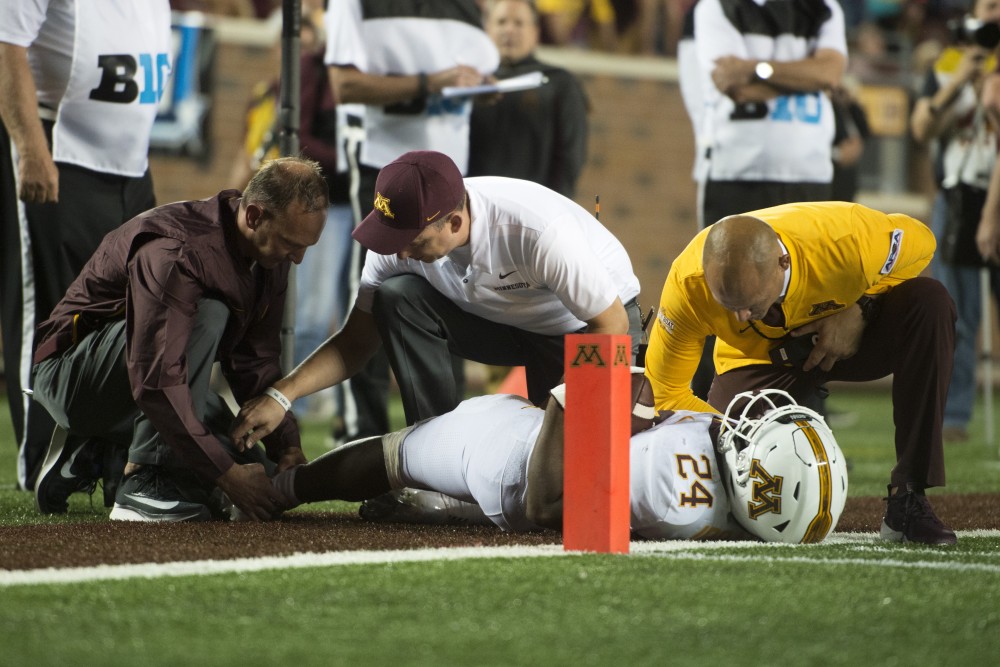A University of Minnesota professor is combining neuroscience and law to examine the impact of legislation regarding concussions in youth sports.
For the past two years, Francis Shen and the Shen Neurolaw Lab, in collaboration with other University researchers, have gathered a comprehensive review on concussions around the state. The team will be organizing the concussion data over the next couple of months and plans to present the research to the Minnesota House of Representatives next year.
The review assesses the implementation and effectiveness of Minnesota laws on concussions in youth sports and whether youth athletes are receiving adequate care after injury. The study found that youth sports organizations often have limited resources to carry out policies. It also found a lack of standardization on the diagnosis and management of concussions and lack of oversight from governing bodies on concussion treatment.
“It will be the first comprehensive study on concussion law and policy [in youth sports] here in the state,” Shen said. “I think it will draw some significant attention.”
Because of the potential community impact on youth sports around the state due to this research, Shen testified three times in front of the House during the 2016-17 legislative session to get funding for further concussion research. While his funding was cut during budgetary negotiations, Shen plans to testify again next year after the report is complete.
Conducting a statewide survey and running various focus groups for youth sports stakeholders has helped researchers identify the challenges in implementing these laws and find what problems still need to be addressed, said Sydney Diekmann, a manager for the lab.
“We’ve gone above and beyond,” Diekmann said.
The research was conducted through a $48,000 grant from the University as a part of the Provost’s Grand Challenges Research Initiative to further the research goals of the University’s Driving Tomorrow strategic plan. The concussion research was one of 29 recipients of the grant.
Shen’s lab focuses on neurolaw, which is a field combining law with neuroscience. In addition to concussions, the lab also examines the impact of old age on the decision-making of judges in court and the effectiveness of brain-based lie detection in criminal cases.
“In order to do that work, we have to have an understanding of both the science and the law and try to bring them together,” Shen said. “We do a lot of bridging work.”
Carly Rasmussen, another research assistant for Shen, said that although neurolaw is a relatively new field, it can have a major impact on communities.
“Neuroscience is really opening up a lot of really big ethical questions about what we need to be aware of and keeping in mind,” Rasmussen said.
Shen’s collaborative team partnered with the Minnesota State High School League to spread awareness on their research through a survey launched this fall.
“It’s hard to know whether someone has a concussion or not, because you can’t see the brain and it’s not easy to get into,” Shen said. “It’s the most complicated organ, and law cares about [it] and we typically care about [it] the most.”







